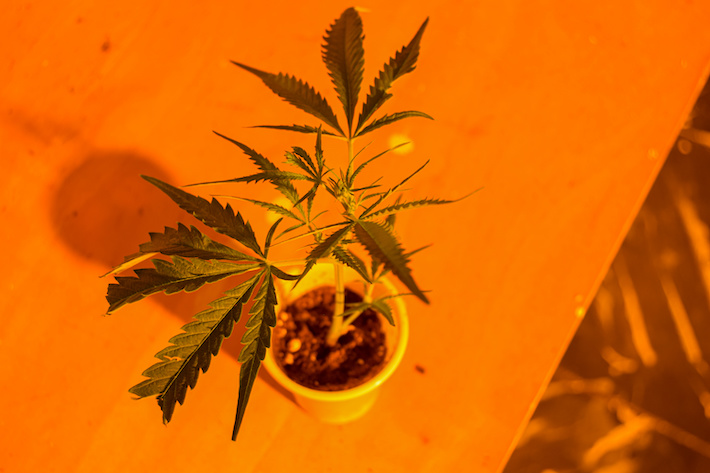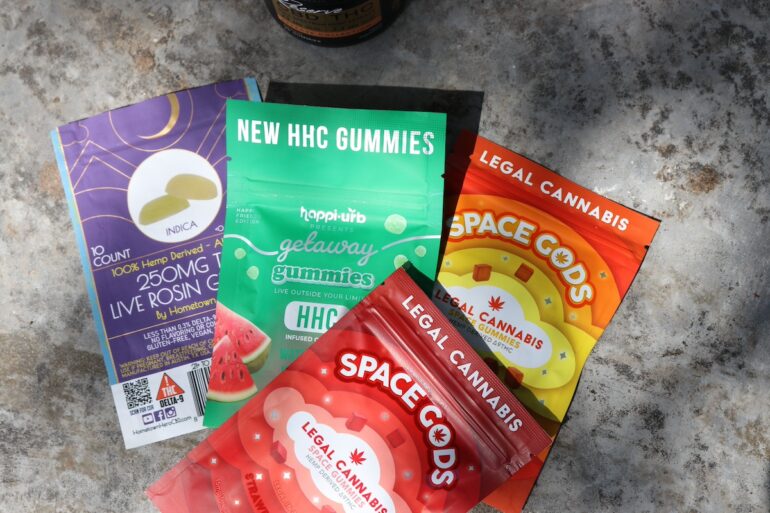When the Agriculture Improvement Act of 2018 (the “Farm Bill”) was passed, lawmakers didn’t realize they were opening the door for delta-8 THC. With the definition of “hemp” set into the statutes and eagerly replicated by most states without a second thought, Florida – like most states – legalized delta-8 THC shortly afterwards.
The state had a new law on delta-8 come into force on July 1st, but it will remain legal for adults aged 21 or over, at least in the short term.
However, there are still many important restrictions on delta-8 THC in Florida, including rules about driving under the influence and using it in public. Here’s what you should know.
Is Delta-8 THC Legal to Sell in Florida?
Delta-8 THC is legal in Florida, but sales are restricted to adults aged 21 or over beginning July 1, 2023, now that SB 1676 has been signed by Gov. DeSantis.
Delta-8 THC was first legalized in Florida following the passage of Senate Bill 1020 in 2019, which defined “hemp” in line with the 2018 federal Farm Bill. This means that “all cannabinoids” from a hemp plant are legal in the state, noting that a cannabis plant with less than 0.3% delta-9 THC by dry weight is considered a hemp plant.
A bill that received the Governor’s signature on June 27th, SB 1676, institutes an age restriction (21+) on hemp products (including delta-8 THC), along with requirements for advertising and packaging. However, it does not make delta-8 THC illegal. It took effect from July 1st, 2023.
RELATED: Delta-8 THC Legality by State
Delta-8 THC Legislation Timeline for Florida
Delta-8 THC was made legal in Florida with the state’s passage of SB 1020 in 2019, and some 2023 legislation will add some relatively minor restrictions on the cannabinoid.
After the passage of the Farm Bill in 2018, states across the country began writing (usually) the same language into their state statutes. Florida did this with SB 1020, which included the same language as the federal-level bill and therefore legalized delta-8 THC, provided it came from hemp.

Unfortunately, the law only instituted minimal rules and regulations on hemp-derived cannabinoids. For example, prior to SB 1676, Florida hemp law bans the sale of inhalable hemp products to anyone aged under 21 but does not limit non-inhalable products at all. This (and similar) issues have been rectified by SB 1676, which broadens the age restriction, explicitly prohibits child-friendly marketing and requires that any facilities making hemp extract meet food safety standards.
Can Delta-8 THC Be Added to Food?
Delta-8 THC can be added to food if it is going to remain within Florida. However, federal law classifies delta-8 as an adulterant, and so foods containing it cannot be sold across state lines.
The federal Food, Drug and Cosmetic Act (FD&C Act) limits which ingredients producers are allowed to put in foods. The FDA interprets these rules as not allowing delta-8 THC in foods, because it is not Generally Recognized as Safe and is therefore an adulterant. However, Florida hemp law explicitly says that hemp-derived cannabinoids “are not controlled substances or adulterants.”
This creates some conflict between state and federal law. However, in this case, the FD&C Act applies in cases of interstate commerce (i.e. selling a delta-8 gummy to someone in California) but the local law applies to intrastate commerce (selling the same gummy within Florida). In other words: it’s legal in foods within Florida but you can’t sell it to customers in other states.
However, if you sell prepackaged or fresh food directly to customers, you’ll need a Retail Food Establishment Permit.
Can You Buy Delta-8 in Florida?
Delta-8 THC is available to buy in Florida. State residents aged over 21 can buy delta-8 from stores within the state and many online vendors across the country.
RELATED: Best Delta-8 Brands of All Times
Delta-8 Alternatives You Can Legally Buy in Florida
Despite SB 1676 aiming to tighten restrictions on hemp products, other delta-8 alternatives such as delta-10 THC, HHC and hemp delta-9 THC are still legal in the state. However, they can only be sold to adults aged 21 or over.
RELATED: The Strongest THC Gummies
Are There Age Restrictions on Delta-8 THC Products?
Gov. DeSantis signed SB 1676 into law, so delta-8 THC products can only be sold to adults aged 21 or over beginning July 1st, 2023. However, technically until that date there was no age restriction on non-inhalable hemp products.
Can You Consume Delta-8 THC in Public in Florida?
Florida hemp law doesn’t address public hemp use, but you shouldn’t smoke hemp in any location where you can’t smoke cigarettes, and generally it’s safer to just use hemp in private places.
As in most states, Florida’s hemp law doesn’t address public use of hemp products. Technically, you could interpret this as there only being minimal restrictions on where you can use hemp, aside from existing rules barring smoking and vaping in (most) enclosed indoor workplaces. However, this could cause problems even in a smoking area, since people may assume you’re smoking marijuana.
Can You Drive Under the Influence of Delta-8 THC in Florida?
It’s illegal to drive under the influence of delta-8 THC in Florida, even if it’s from a legal hemp product.
Florida’s driving under the influence law applies to any controlled substance in the state, and delta-8 THC is mentioned specifically in the state’s controlled substances list.
The punishment in the first instance is a fine of between $500 and $1,000, as well as up to 6 months in prison.
Can You Travel to Florida With Delta-8?
You can travel to Florida with delta-8 THC, provided it’s legal in the state you’re traveling from and you’re aged 21 or over.
At time of writing (July 2023), the prevailing argument is that delta-8 THC is legal at the federal level (although this may change later this year), as well as in Florida specifically. Because of this, the Transport Security Administration (TSA) allows hemp products on flights, but it’s a good idea to bring a Certificate of Analysis (COA) for your product to prove that it’s legal hemp.
It’s important to note that the DEA plans to issue rules relating to delta-8 THC soon, and the Farm Bill will be updated in 2023. Either of these changes could make it illegal to travel to Florida with delta-8.
Closing Thoughts: The Future for Delta-8 in Florida
Since a hemp law was already signed by Governor DeSantis in June 2023, it’s unlikely any further changes relating to delta-8 THC will come from the state this year. However, things are set to change at the federal level pretty soon.
Not only is the Farm Bill being updated in 2023, the DEA has stated that it intends to issue a rule classifying delta-8 THC as “synthetic” based on the way it’s produced. This means that delta-8 THC would become illegal at the federal level; although it’s unlikely the rule will be officially proposed until the fall. While Florida could continue with the current system – in the same way they prescribe medical marijuana despite federal law saying it has no accepted medical use – it will undoubtedly put pressure on lawmakers to change their rules to match.
It’s hard to predict what will happen to delta-8, but it looks as though the federal government will take the opportunity to close the “loophole” they created in 2018.
